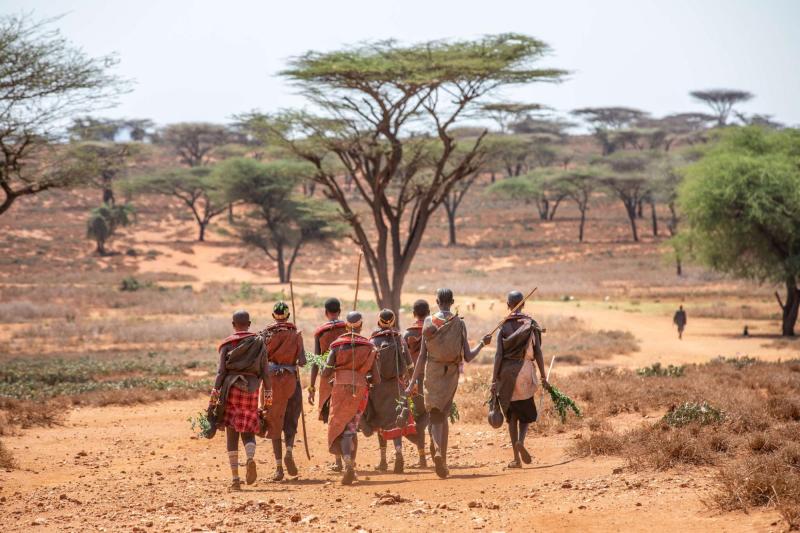The use of gender transformative approaches (GTAs) in pastoralist societies: What we know about what works and recommendations for a way forward
Agro-pastoral communities in drylands face worsening climate, economic and social pressures, all of which disproportionately impact women. GTAs can help build resilient, sustainable livelihoods.
Éditeur
SPARC

Samburu women returning from community meetings in Ngilai, Kenya
Credit
© E. Millstein/Mercy Corps 2022
Over the past 15 years, gender transformative approaches (GTAs) have emerged to address limitations in gender integration, shifting from a narrow focus on women to structural change. Implemented over 12–24 months, they engage households, communities, and institutions for lasting impact.
This study examines behaviour change strategies and monitoring tools used in the Horn of Africa, providing insights to shape future GTA tools for dryland communities.
Main findings include:
- Need for evaluation: More rigorous assessments are required to measure GTAs' impact on food security. Gender norms that disadvantage women contribute to food insecurity, yet evidence shows that when women control resources, household nutrition improves. Closing the gender gap in agriculture could increase global production by 4% and reduce undernourishment by 17% (Cole & Acosta, 2023).
- Application gaps: GTAs are mainly applied in mixed farming but lack evidence in mobile and pastoralist communities.
- Need for evidence: More research is required to identify effective and scalable implementation strategies, particularly in rural areas.
- Adaptation required: GTAs must be tailored to pastoral communities, considering mobility, seasonal shifts, and frequent shocks. Social dialogue, facilitated by community role models, can help challenge unequal norms.
- Intersectional challenges: Factors like ethnicity, age, disability, and climate change amplify risks, requiring GTAs to address these for greater resilience and reduced violence, especially for women and youth.
- Strengthening women’s agency in agriculture, including livestock, is key to building resilient households.